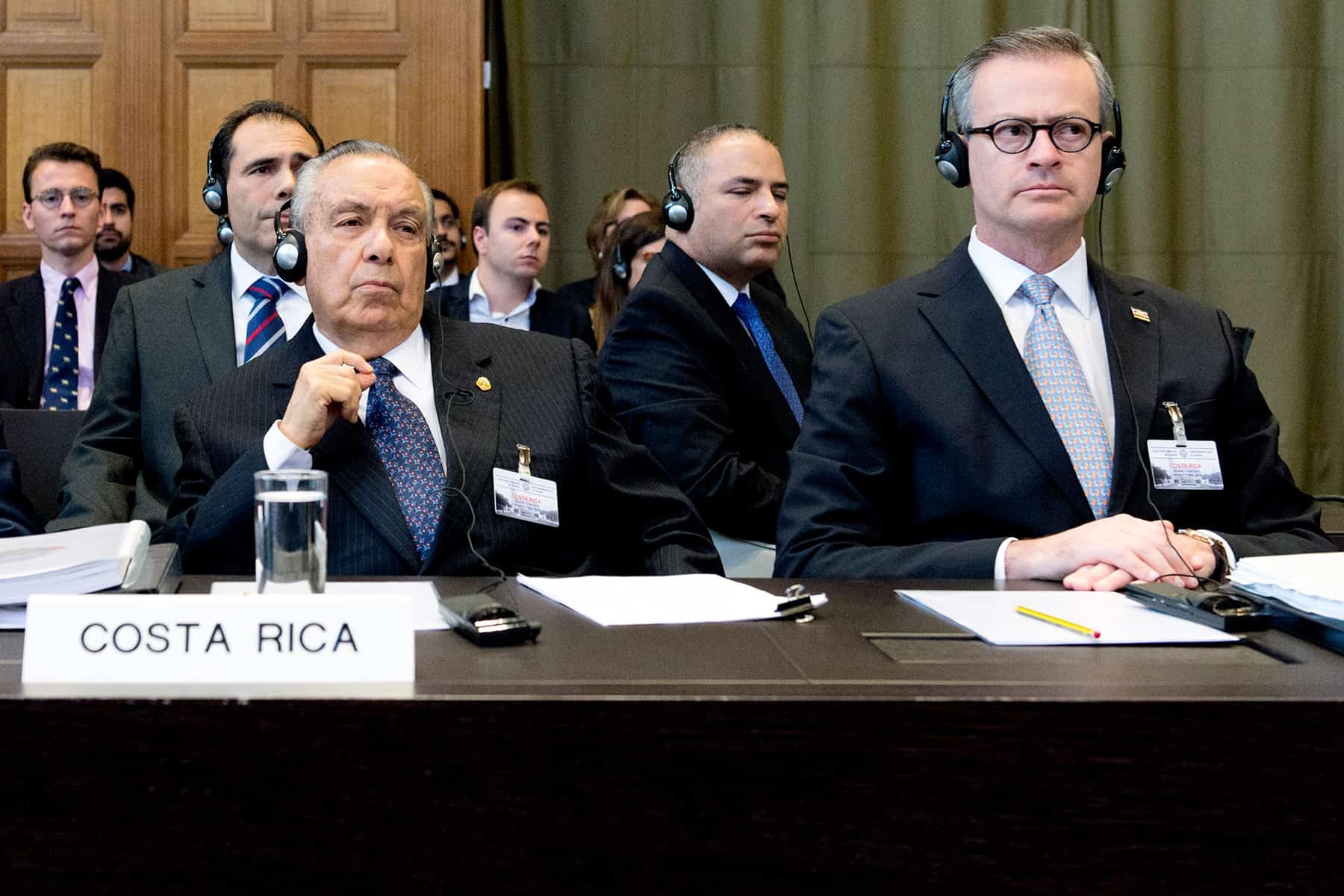Nicaragua presented experts before the International Court of Justice (ICJ) this week who testified that Costa Rica’s border road has caused so much sedimentation in the San Juan River that it requires dredging to make it navigable.
Nicaragua’s attorneys presented closing arguments Monday and Tuesday in the country’s case alleging Costa Rica has caused costly damage to the San Juan, a natural boundary between the two countries, because of its construction of a 160-kilometer road that runs along Costa Rica’s side of the river.
Nicaragua’s lawyers claimed that the construction of the road in Costa Rica has dropped “massive amounts of sediment” into the San Juan, specifically at the fork between Costa Rica’s Colorado River and the San Juan.
Experts said the amount of sediment varies between 190,000 and 250,000 tons per year, and that the sediment is reducing the depth of the river in a perpetual process that modifies its geography and makes navigation increasingly difficult.
Costa Rica’s Foreign Minister, Manuel González Sanz, said Wednesday that the expert testimony failed to justify the need to dredge the San Juan River.
“Nicaragua’s legal team failed to demonstrate the existence of any damage caused by the construction of a road in Costa Rica. Arguments have been inconsistent and they lack evidence to support the thesis that the border road excessively increased sedimentation in the San Juan, as Managua claimed in 2011,” González told reporters following the hearings.
Recommended: Costa Rica, Nicaragua enter final hearings at The Hague in border dispute
“They argue that, despite the sediment being carried from several kilometers upriver, it happens that all of it concentrates at the exact point where the San Juan and Colorado rivers converge. If that is true, sediment should be affecting both rivers, and this is not happening on the Colorado. That means the sediment is so smart that it stays in that exact spot and is only affecting the San Juan and therefore it must be dredged,” González said.
Hearings resume Thursday when Costa Rica’s legal team will have two days to refute Nicaragua’s arguments.
Last week, Costa Rica’s lawyers presented their arguments in the parallel case against Nicaragua for allegedly invading Costa Rican territory and opening artificial canals that caused environmental damage in a protected area.
Next week both countries will have their last opportunities to present their cases during rejoinders. April 28 and 29 will be dedicated to the Portillos Island case, where the canals were dredged, while April 30 and May 1 are scheduled for the border road case.
After the hearings, ICJ justices will analize all evidence and arguments and issue their final resolutions in both cases.
Timeline of border dispute

